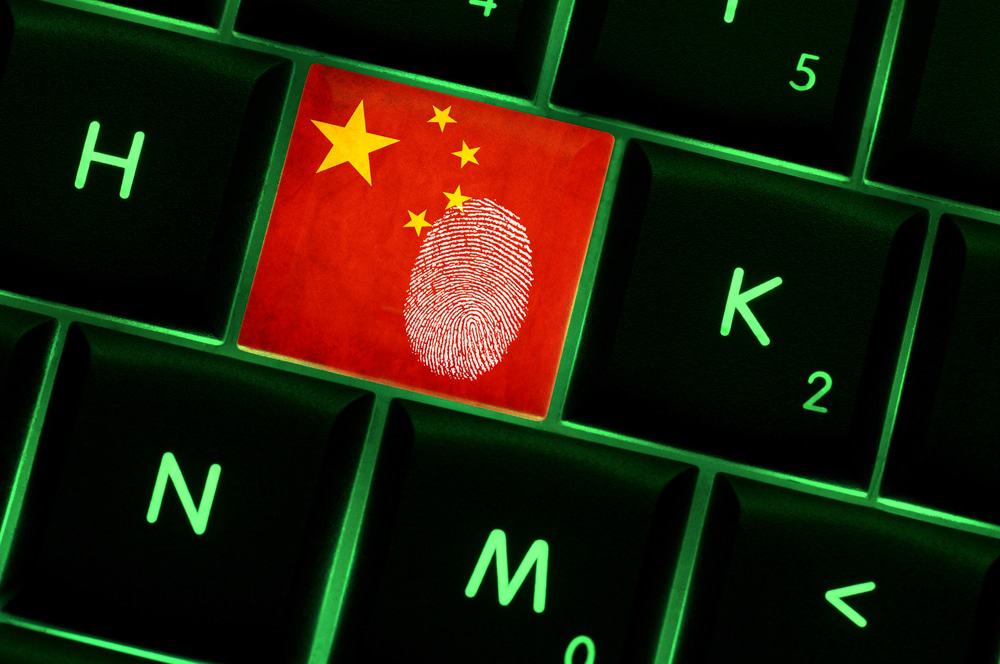DIGITAL LIFE

Myanmar and China have the worst internet freedom in the world
Myanmar and China have the world's worst internet freedom, with declines reported in a number of other countries led by Kyrgyzstan, a study said Wednesday.
The further deterioration in Myanmar, a Beijing ally where the military seized power in 2021, marks the first time in a decade that any country has matched China for the lowest score in the Freedom on the Net report.
The report by Freedom House, a pro-democracy research group funded by the US Congress but run independently, found that internet freedom fell for the 14th straight year globally, with more countries seeing declines than rises.
In Myanmar, the junta has harshly cracked down on dissent since ending a decade-long experiment in democracy, with systematic censorship and surveillance of online speech.
Freedom House pointed to new measures imposed by the junta in May to block access to virtual private networks (VPNs), which residents use to bypass internet controls.
China has developed a sweeping "great firewall" meant to root out content that poses a threat to the ruling Communist Party.
Asked about the report on Wednesday, Beijing insisted its people "enjoy various rights and freedoms in accordance with the law".
"As for the so-called report, I think it is entirely baseless and made with ulterior motives," foreign ministry spokeswoman Mao Ning said.
The country that showed the biggest drop in the survey was Kyrgyzstan, where authorities shuttered website Kloop, which is largely funded by US-based NGOs and had reported on allegations by an opposition leader of torture in custody.
Other countries downgraded included Azerbaijan—host of next month's COP29 climate summit—for detaining people over social media posts, and Iraq, where a prominent activist was slain after Facebook posts encouraging protests.
The biggest gains were seen in Zambia, with the report saying the country saw growing space for online activism.
Iceland was ranked the most free online, followed by Estonia and then Canada, Chile and Costa Rica.
The United States meanwhile held steady at 76 on a 100-point scale, with Freedom House renewing concern about the lack of safeguards against government surveillance.
It also pointed to actions by at least 19 US states against the misuse of artificial intelligence in election campaigns.
“Cult Crime”: Christians Prosecuted in China for Sharing Their Faith on Social Media...Two Christians have been prosecuted and arrested in China after sharing their faith on the messaging app WeChat.
According to the ChinaAid portal, they were detained by police in the Xinjiang region in August last year and now face charges of “using superstitious sects, secret societies or cults to undermine law enforcement.”
The local procuratorate of the city where the “cult crime” took place is responsible for the cases against the two religious leaders. The Aksu People’s Court originally planned to hear the Christians’ defense on August 29 this year, but due to objections raised by the prosecution, the hearing was rescheduled to the day of the trial, which has not yet been determined.
The defense of the accused legally requested a copy of the judge’s electronic data, a request that was refused, on the grounds that the lawyers would be able to view and listen to the information in court. The lawyers are working from Chengdu, a region thousands of kilometers away from Aksu. One of the lawyers, identified as Yuan, claims that the electronic data that was illegally denied is crucial evidence to determine whether the defendants were guilty. In response to the court's violations, the lawyer filed a complaint and publicized the matter on Weibo. He wrote: "If the lawyers' right to access case files cannot be guaranteed, how can the case be tried fairly? Xinjiang is truly beautiful! Not only is the scenery beautiful, but the people are also warm and hospitable.
Earlier this year, I reported the problems to the Xinjiang Autonomous Region People's Procuratorate and received a very warm, considerate and professional reception. It is unforgettable to this day. I believe that what we encountered in Aksu is just an isolated case! Please, Aksu City Court, protect the lawyers' practice rights in accordance with the law. This is also to protect the beauty of Xinjiang." According to Article 53 of the Criminal Procedure Law of the People’s Republic of China, defense lawyers are allowed to consult, extract and copy case file materials involving court cases.
Article 14 of the “Provisions on the Legal Safeguard of Lawyers’ Practice Rights” also stipulates that “defense lawyers may consult, extract and copy case file materials on the day the procuratorate reviews and processes the case” and “defense lawyers may copy case file materials by means of photo, scanning, electronic data copying, etc.” ChinaAid, which investigates cases of religious persecution by the Chinese regime, reported that there were a number of problems during the trial of the Christians.
Among them, it cited that the court did not notify the defendants of the trial three days in advance, as required by law, and it also reported that the defendants were brought to the court with legcuffs after leaving the detention center where they were being held, and the court police did not have keys to remove the handcuffs. A prosecutor in the case admitted during the trial that some signatures used in additional evidence in the investigation had their dates altered and were added later, which lawyers believe suggests possible “fabrication of evidence.”
The Aksu court notified the Christians’ defense that it wants to hold the trial on Thursday (17). However, lawyer Yuan said that the conditions for a fair trial were not met, as lawyers have not yet been allowed to copy important electronic data from the case.
mundophone

No comments:
Post a Comment